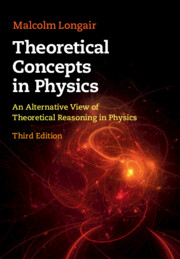Book contents
- Frontmatter
- Dedication
- Contents
- Preface and Acknowledgements
- 1 Introduction
- Case Study I The Origins of Newton’s Laws of Motion and of Gravity
- Case Study II Maxwell’s Equations
- Case Study III Mechanics and Dynamics: Linear and Non-linear
- Case Study IV Thermodynamics and Statistical Physics
- Case Study V The Origins of the Concepts of Quantisation and Quanta
- 13 Black-Body Radiation up to 1895
- 14 1895–1900: Planck and the Spectrum of Black-Body Radiation
- 15 Planck’s Theory of Black-Body Radiation
- 16 Einstein and the Quantisation of Light
- 17 The Triumph of the Light Quantum Hypothesis
- Case Study VI Special and General Relativity
- Case Study VII Cosmology and Physics
- Author Index
- Subject Index
15 - Planck’s Theory of Black-Body Radiation
from Case Study V - The Origins of the Concepts of Quantisation and Quanta
Published online by Cambridge University Press: 27 March 2020
- Frontmatter
- Dedication
- Contents
- Preface and Acknowledgements
- 1 Introduction
- Case Study I The Origins of Newton’s Laws of Motion and of Gravity
- Case Study II Maxwell’s Equations
- Case Study III Mechanics and Dynamics: Linear and Non-linear
- Case Study IV Thermodynamics and Statistical Physics
- Case Study V The Origins of the Concepts of Quantisation and Quanta
- 13 Black-Body Radiation up to 1895
- 14 1895–1900: Planck and the Spectrum of Black-Body Radiation
- 15 Planck’s Theory of Black-Body Radiation
- 16 Einstein and the Quantisation of Light
- 17 The Triumph of the Light Quantum Hypothesis
- Case Study VI Special and General Relativity
- Case Study VII Cosmology and Physics
- Author Index
- Subject Index
Summary
Planck immediately set about attempting to understand the significance of his formula for black-body radiation. He began by using Boltzmann's procedure in statistical mechanics, an approach he had previously rejected, but then adopted empirically a definition of the entropy of the oscillators which introduced the concept of quantisation. HIs derivation was not understood by his contemporaries, including Einstein, because of the lack of a theoretical motivation for the definition of entropy. Despite a major effort to understand his formula, Planck found no classical solution to the meaning of h, Planck's constant.
Keywords
- Type
- Chapter
- Information
- Theoretical Concepts in PhysicsAn Alternative View of Theoretical Reasoning in Physics, pp. 373 - 388Publisher: Cambridge University PressPrint publication year: 2020

